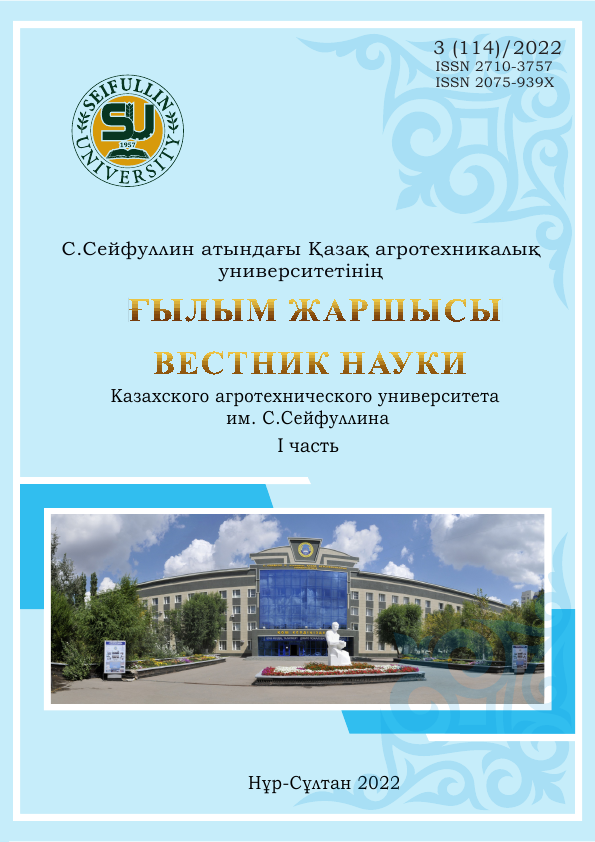EPIZOOTIC SITUATION OF ANIMAL EMCAR (BlACKLEG) ON THE TERRITORY OF THE REPUBLIC OF KAZAKHSTAN FOR 2010- 2020
DOI:
https://doi.org/10.51452/kazatu.2022.3(114).1173Keywords:
infection; epizootology; emphysematous carbuncle; monitoring; epizootic focus; intensity of the epizootic situationAbstract
The article presents the results of epizootological monitoring of emcar in animals based on the analysis of official reporting data of the veterinary service of the Republic of Kazakhstan for 2010-2020 and the results of the authors' own research. The main epizootological indicators of the epizootic process in the country have been established, the incidence areas that affect the unfavorable and tense epizootic situation for this disease have been determined. The focality indicator on emcar, for this period of time, averaged from 1 to 4 animals, which indicates the non-contagiousness of the infection. By studying the occurrence of the disease on
the territory of the Republic of Kazakhstan over the years, the frequency of epizooties has not been established. An analysis of the monthly dynamics of the disease focus showed that blackleg manifests itself in a greater number mainly in October and November. Emcar foci are least or not registered at all in the winter months and early spring (December, January, February and March). For the period from 2010 till 2020 (11 years) on the territory of the Republic of Kazakhstan, a high degree of incidence was observed in 3 regions (West Kazakhstan, East Kazakhstan, Zhambyl), an average degree - in 3 regions (Almaty, Aktobe, Pavlodar), and in other 4 regions (Kostanay, Atyrau, Karaganda, Akmola) - the degree of incidence was low. Based on assessing and retrospective analysis of the established epizootological indicators, epizootological zoning maps were developed showing the balckleg status of each region. According to the compiled map of the epizootic situation, for the period from 2010 to 2020, 71.4% of the territory of 10 regions of the Republic of Kazakhstan turned out to be disadvantaged for animal blackleg. The territory of the remaining 4 regions (28.6%) of the republic (Kyzylorda, North Kazakhstan, Mangystau, Turkestan) is safe from animal emcar. The obtained new scientific data on the dynamics of epizootic situation on
emcar on the territory of the Republic of Kazakhstan can be used in drawing up a plan and carrying out preventive measures, development of effective measures to control animal emcar.

